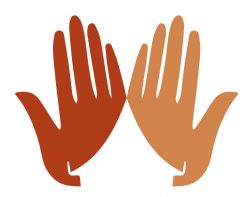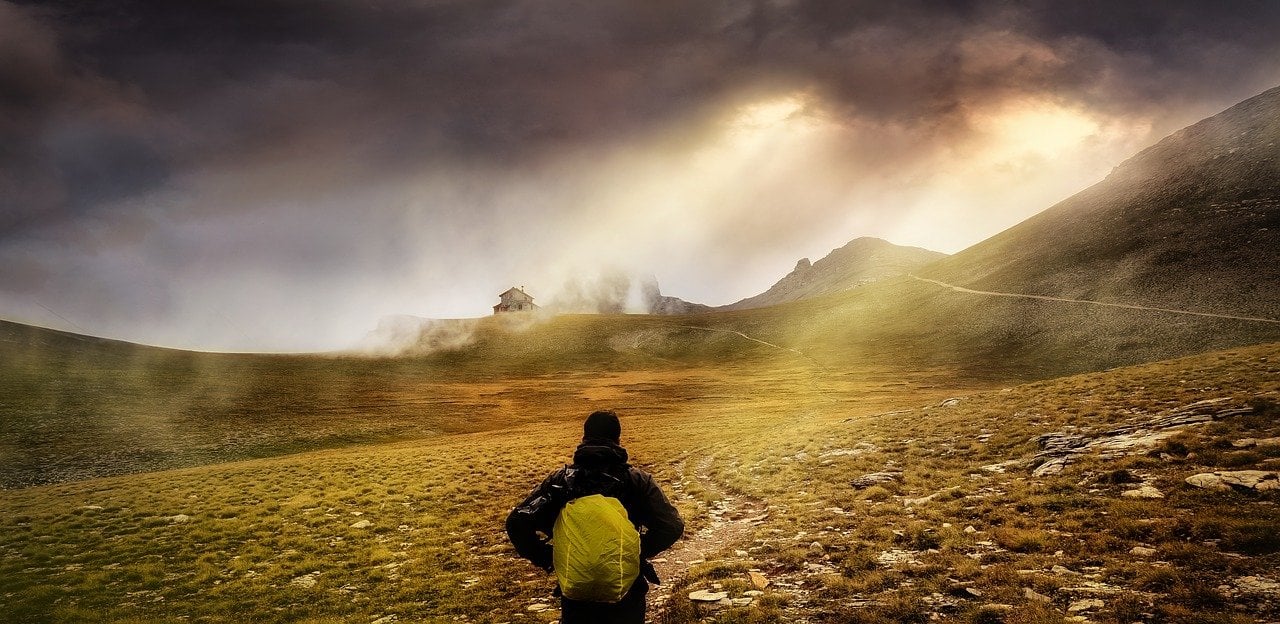A bit of a misquote this. The full quote is
Little do ye know your own blessedness. For to travel hopefully is a better thing than to arrive and the true success is to labour. From Virginibus Puerisque, Robert Louis Srtevenson,1881.
The doaists also say, The Journey is the reward.
I say, as a Buddhist, after much practice – enlightenment is not the destination. We find it on and in the path itself.
Although I am way off anything I could call enlightenment, the more I practise, the more I realise that if we go searching for enlightenment, it just becomes another desire, another craving. Because of this we will never find it. In fact, doing that will simply push us further away and drive us to a place of unskillful behaviour.
So if we are learning from the path itself, from life itself, what is it that is teaching us. The answer to this is challenge, difficulty, suffering. This is what teaches us.
It’s a tricky thing to get our minds around but as always with Buddhism, the answer comes out of the way we react to things. So it isn’t the challenge itself that actually teaches us, it is the way we react to it. Let’s take a challenge that results in anger. Anger is our own. We own it and often we hold on to it. But we do actually have a choice with anger. We can choose to let it go. I remember once, on a retreat I was running and I was talking to a lady about anger. She talked of her ex husband. She had recently separated. I saw the flash of anger in her eyes and I said ‘ah there is is. I can see and I also feel your anger coming off you’. She said. Yes, but it’s not surprising I’m angry. He behaved horribly towards me’. ‘No doubt’ I said ‘but you still have a choice whether to be angry or not’. I asked her if her husband new she was here on retreat. She said no. I asked her if her husband knew and understood how she was feeling right now, in this moment. She said no, of course not. I asked her if her husband even knew she was thinking about him right now. She said no. So I asked her ‘in this particular moment, how can it possibly be that your anger is your husbands ownership? He’s not here, he doesn’t know what you are thinking and he doesn’t even know that you are thinking about him. This must only be your anger and therefore your choice’.
Anger is so powerful it feels very much like it is ‘caused’ by the source of our anger. But that’s just an occurrence or an event. The anger is something very different. It is a reaction inside of us. Therefore, we own it.
How does this teach us? We’ll if we can start to allow the anger to lose its power over us, we can decide to let it go.
Anger does have power. Somehow, it’s intoxicating affect makes it feel as if, by getting angry, we are somehow ‘winning a little’ against the other person. Perhaps also, we feel that if we don’t cultivate that anger we are somehow losing a little. Very strange. It really is like a beast inside of us.
How do we learn from it? We’ll, let’s start with the body scan, because this will be key to dealing with emotion.
In Buddhist thinking, the enlightenment IS the path. It is found on the path. In the muck and glory of meditation and mindfulness. Actually, I think it is probably staring us in the face.
Why was the body scan so important to working through this stuff? Because a physical reaction with all emotion is found in the body. The emotion appears, the mind kicks in with its accompanying thoughts and the body fires up with tension and the fight or flight hormone cortisol. So, this is our starting point. The body. We direct our awareness to the body. We soften in the body. We soften in the heart space. We focus our awareness on this and by doing this we are taking our mind away from those thoughts that support the emotion. We break the emotion-thought-more emotion cycle. The emotion dissipates. Some of you will be listening to this and thinking ‘hang on, doesn’t all this make me a push over?’ No. Letting go of anger doesn’t mean we don’t have to strong and assertive. Of course we can express our position, but we don’t have to do it with anger. In fact when we express without anger, the outcome is usually much more balanced and effective. Especially as we will still be listening too. We can’t always be sure of our position. There may be good reasons why the other person acted in a certain way. We should always be ready for this.
Anger is a very difficult emotion to work with as it can completely take us over if we allow it. There are a few skilled people who have the ability to appear angry even when they aren’t. I can’t do that. I can’t be convincingly angry when I’m not. Im a lousy actor. Not many of us can do this. Also, when I allow anger in, it is very difficult for me to ‘act’ calm. That is also true for most. I actually think, if we have that ability it isn’t skilful and it isn’t honest. It is, frankly unskillful and unwholesome for ourselves and for others.
So what do we do here? We’ll, we can certainly learn the art of letting go in the body first but what is more powerful is to learn the art of the metta bhavana. To learn how to cultivate compassion and choose the compassionate path. We can do that and still stay assertive. I believe that this approach is way more powerful than using anger!
A key part of Buddhist practice is compassion. Why does compassion arise? It arises because we all have suffering and challenge in our lives. Because of this suffering, there is empathy for others. If there was no suffering or challenge, compassion would not have arisen!
So the answer to the arising of compassion is from the suffering we have in our lives. Imagine a world where there was no suffering. We were all content, all of the time? There would be no knowledge of suffering. Therefore no knowledge of how suffering would feel for others and therefore no ability to have empathy. Compassion would not arise. It may sound like a utopian world but I think it would be rather bland and flat. We wouldn’t know how lucky we were because we wouldn’t have experienced the other side of the coin. No compassion, no shared empathy, not joy! This really illustrates how spiritual progress emerges from within our lives, from the path. From the struggle!

